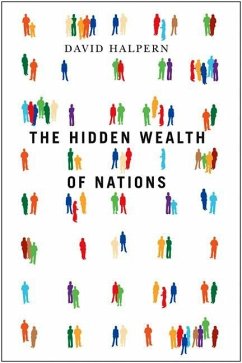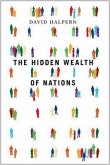Richer nations are happier, yet economic growth doesn t increase happiness. This paradox is explained by the Hidden Wealth of Nations - the extent to which citizens get along with other independently drives both economic growth and well-being.
Much of this hidden wealth is expressed in everyday ways, such as our common values, the way we look after our children and elderly, or whether we trust and help strangers. It is a hidden dimension of inequality, and helps to explain why governments have found it so hard to reduce gaps in society. There are also deep cracks in this hidden wealth, in the form of our rising fears of crime, immigration and terror.
Using a rich variety of international comparisons and new analysis, the book explores what is happening in contemporary societies from value change to the changing role of governments, and offers suggestions about what policymakers and citizens can do about it.
Hinweis: Dieser Artikel kann nur an eine deutsche Lieferadresse ausgeliefert werden.
Much of this hidden wealth is expressed in everyday ways, such as our common values, the way we look after our children and elderly, or whether we trust and help strangers. It is a hidden dimension of inequality, and helps to explain why governments have found it so hard to reduce gaps in society. There are also deep cracks in this hidden wealth, in the form of our rising fears of crime, immigration and terror.
Using a rich variety of international comparisons and new analysis, the book explores what is happening in contemporary societies from value change to the changing role of governments, and offers suggestions about what policymakers and citizens can do about it.
Hinweis: Dieser Artikel kann nur an eine deutsche Lieferadresse ausgeliefert werden.
"An excellent book - a thoughtful and informed analysis of a wide range of policy issues by someone who's 'been there'." -- Professor Richard Easterlin, University of Southern California
"An important book by someone who has been at the centre of public policy to improve our community. This book will do much to rebalance our priorities towards aspects of life which really matter." -- Professor Richard Layard, London School of Economics and Political Science
"An important book by someone who has been at the centre of public policy to improve our community. This book will do much to rebalance our priorities towards aspects of life which really matter." -- Professor Richard Layard, London School of Economics and Political Science








